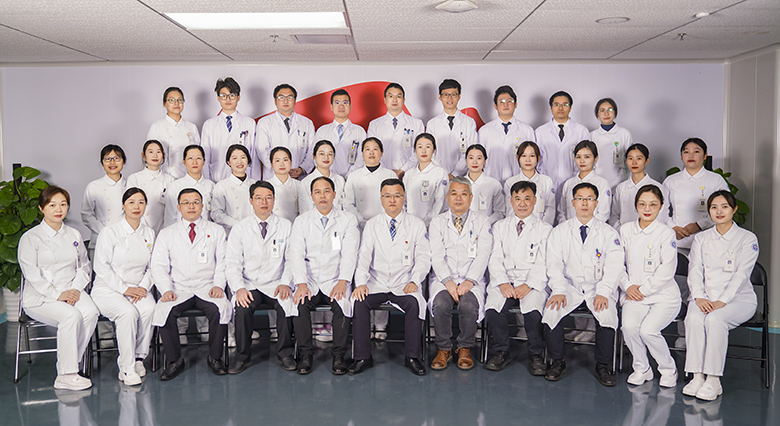



The Department of Neurosurgery at Shenzhen Bao’an People’s Hospital was established as an independent department in 1993. It is one of the earliest neurosurgery departments in Shenzhen and the first in the city to establish a neurosurgery intensive care unit (NICU). The department currently has 51 beds, including 8 standardized NICU beds, and annually admits nearly 900 patients and performs over 700 surgeries. It is equipped with state-of-the-art neurosurgical equipment, including the German SRORZ ultra-high-definition neuroendoscopic system, Zeiss Pentero series fluorescent surgical microscope, Medtronic neurosurgery optical electromagnetic navigation system, stereotactic system, Medtronic and German snake brand neurosurgery power system, intracranial pressure monitor, and BIS monitoring system.
The department currently has 4 chief physicians, 2 deputy chief physicians, 4 attending physicians, and 1 resident physician. Among them are 4 professors, 2 master’s supervisors, 1 MD holder, and 8 master’s degree holders. The nursing team has 23 members, including 12 with intermediate and senior titles and 20 with junior titles.
In the treatment of neurological tumors, the department can perform microsurgical resection of various cranial tumors, endoscopic transnasal transsphenoidal resection of pituitary tumors, microscopic resection giant meningiomas after assisted embolization, resection of cerebellar tumors, and resection of malignant gliomas. A multidisciplinary team (MDT) has been established in collaboration with related departments such as radiotherapy, oncology, and pathology to support patient recovery.
In the management of vascular diseases of the brain and spinal cord, the department routinely performs interventional embolization of intracranial aneurysms, embolization of high-flow complex cerebral arteriovenous malformations, microscopic craniotomy and clipping of cerebral aneurysms, and resection of cerebral arteriovenous malformations. Additionally, the department was the first in Shenzhen to introduce interventional treatment of venous sinus stenosis for chronic headache in and has actively implemented innovative techniques, such as middle meningeal artery embolization for the treatment of chronic refractory subdural hematomas.
In the field of functional neurosurgery, the department can perform percutaneous balloon compression therapy for trigeminal neuralgia, microvascular decompression therapy for the trigeminal and facial nerves, deep brain stimulation surgery for Parkinson’s disease, and resection of lesions in functional areas of the spinal cord and cerebral cortex under intraoperative electrophysiological monitoring.
In the treatment of neurosurgical critical care, the department has implemented multimodal monitoring technologies for severe craniocerebral injuries and cerebrovascular diseases. The application of cerebral blood flow monitoring technology has significantly improved the success rate of treatment for severe patients. Satisfactory results have also been achieved in refractory intracranial infections and complex hydrocephalus. Currently, the department’s volume of endoscopic and interventional surgeries ranks among the highest in Shenzhen, contributing to advancements in the surgical treatment of complex cranial diseases.
The department places great importance on talent development and team building. All doctors have received training at renowned hospitals in China or in countries such as the UK and Germany. It also boasts a dedicated and highly skilled nursing team. The department undertakes teaching and research tasks for undergraduate and graduate students and organizes at least two large-scale neurosurgery academic conferences annually. The “Pengcheng Minimally Invasive Neurosurgery Summit Forum” has become a well-recognized academic brand in Shenzhen’s neurosurgery community.
Under the dedicated efforts of successive department directors and head nurses, the Department of Neurosurgery strives to become a clinical, teaching, and research center for neurological diseases in western Shenzhen, providing better services to patients in Bao’an, Shenzhen, and surrounding areas.
